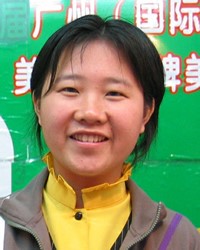Han Chinese, Cantonese in Brunei

Photo Source:
Karolien Taverniers - Flickr
Creative Commons
|
Send Joshua Project a map of this people group.
|
| People Name: | Han Chinese, Cantonese |
| Country: | Brunei |
| 10/40 Window: | Yes |
| Population: | 5,600 |
| World Population: | 80,120,700 |
| Primary Language: | Chinese, Yue |
| Primary Religion: | Ethnic Religions |
| Christian Adherents: | 15.00 % |
| Evangelicals: | 12.00 % |
| Scripture: | Complete Bible |
| Ministry Resources: | Yes |
| Jesus Film: | Yes |
| Audio Recordings: | Yes |
| People Cluster: | Chinese |
| Affinity Bloc: | East Asian Peoples |
| Progress Level: |
|
Introduction / History
The Cantonese are from a region of southeastern China once called Canton, now known as Guangzhou, the capital of Guangdong Province. Traditionally, they were regarded as one of the 30 Han Chinese groups, but some consider them to be from the Tai groups.
The large southern city of Guangzhou, which has been continually inhabited for 2,200 years, has always been the center of Cantonese civilization. The Cantonese often migrated to other parts of the world, either as merchants or as common laborers. Today they live in 36 countries, including Brunei.
The Chinese, especially the Cantonese, have a small presence in Brunei.
What Are Their Lives Like?
Cantonese Chinese run small businesses in Brunei, often by partnering with ethnic Chinese from Malaysia. Some are involved in the informal economy.
What Are Their Beliefs?
Some Cantonese are non-religious or they adhere to traditional Chinese religious practices. Others are Roman Catholic or Evangelical. The latter can be a vital mission force in Latin America or Asia.
What Are Their Needs?
Regardless of where they live, the Cantonese people need a deeper spiritual hunger. People who own businesses typically have little time or energy to consider eternal matters.
Prayer Points
Pray for the Holy Spirit to do mighty things in Chinese churches in Brunei.
Pray for Cantonese in Brunei to have a spiritual hunger that will lead them to Jesus Christ.
Pray for Cantonese Christians to evangelize and disciple those who are willing to find their way to the one who is the Truth.